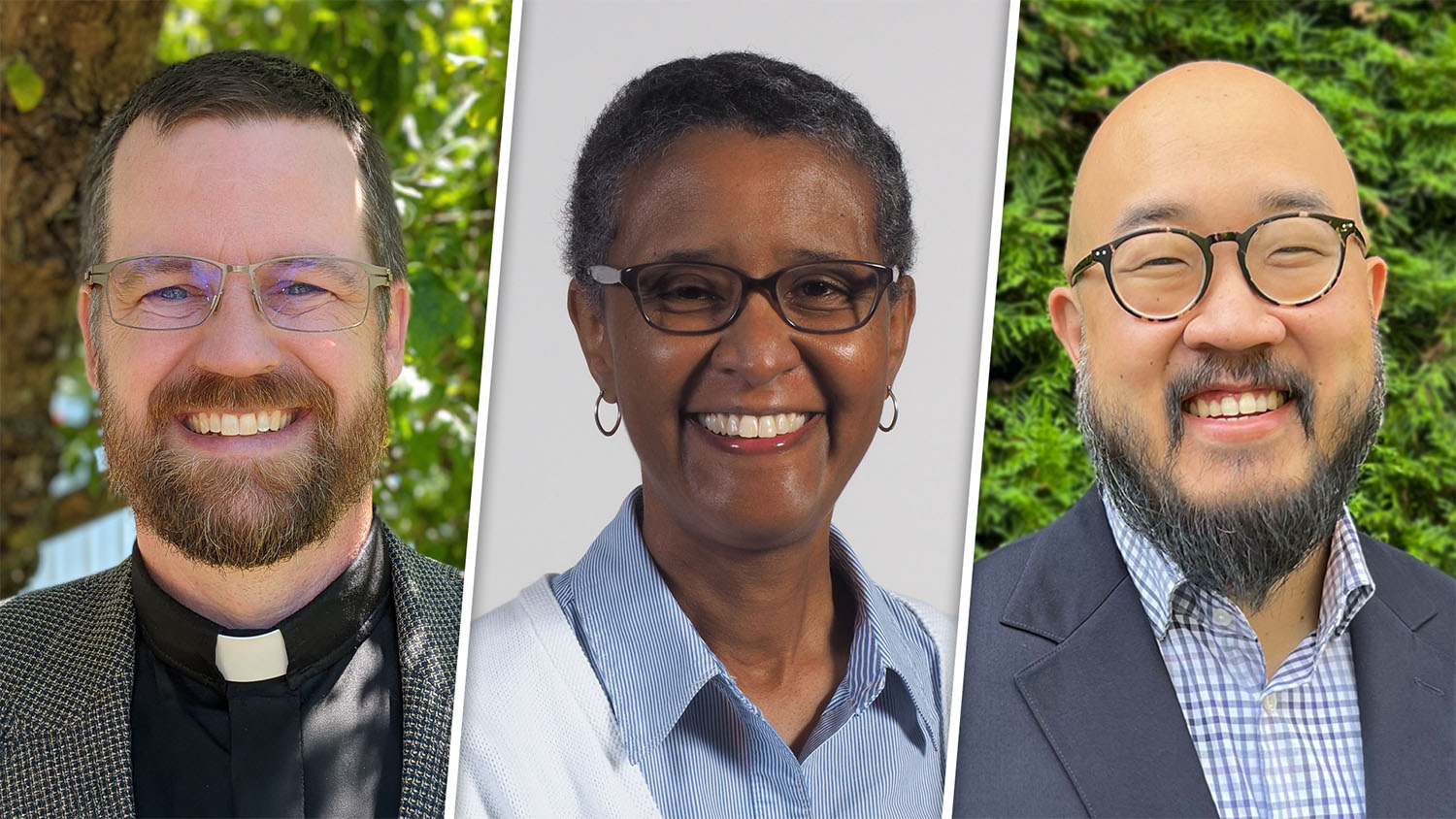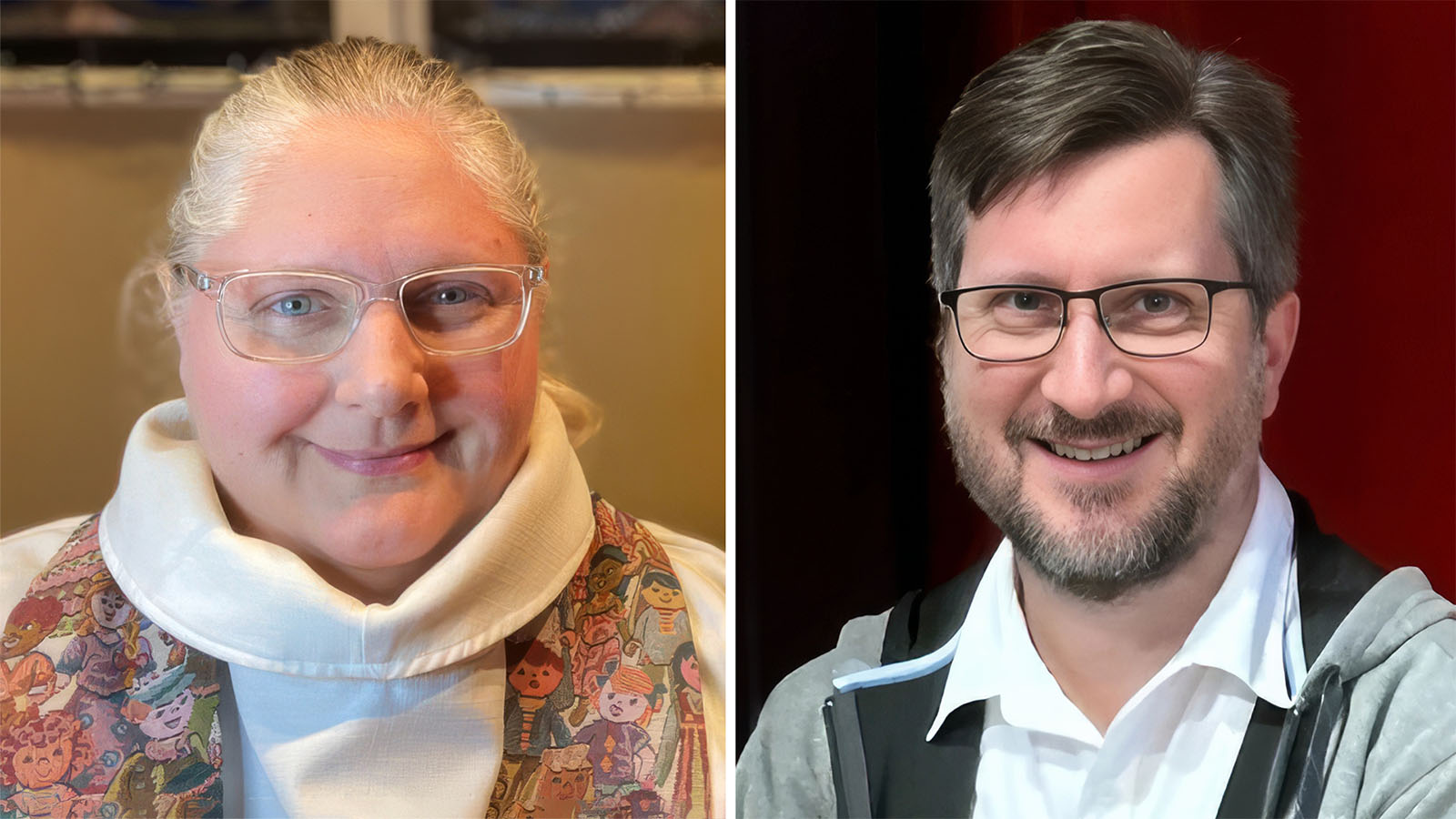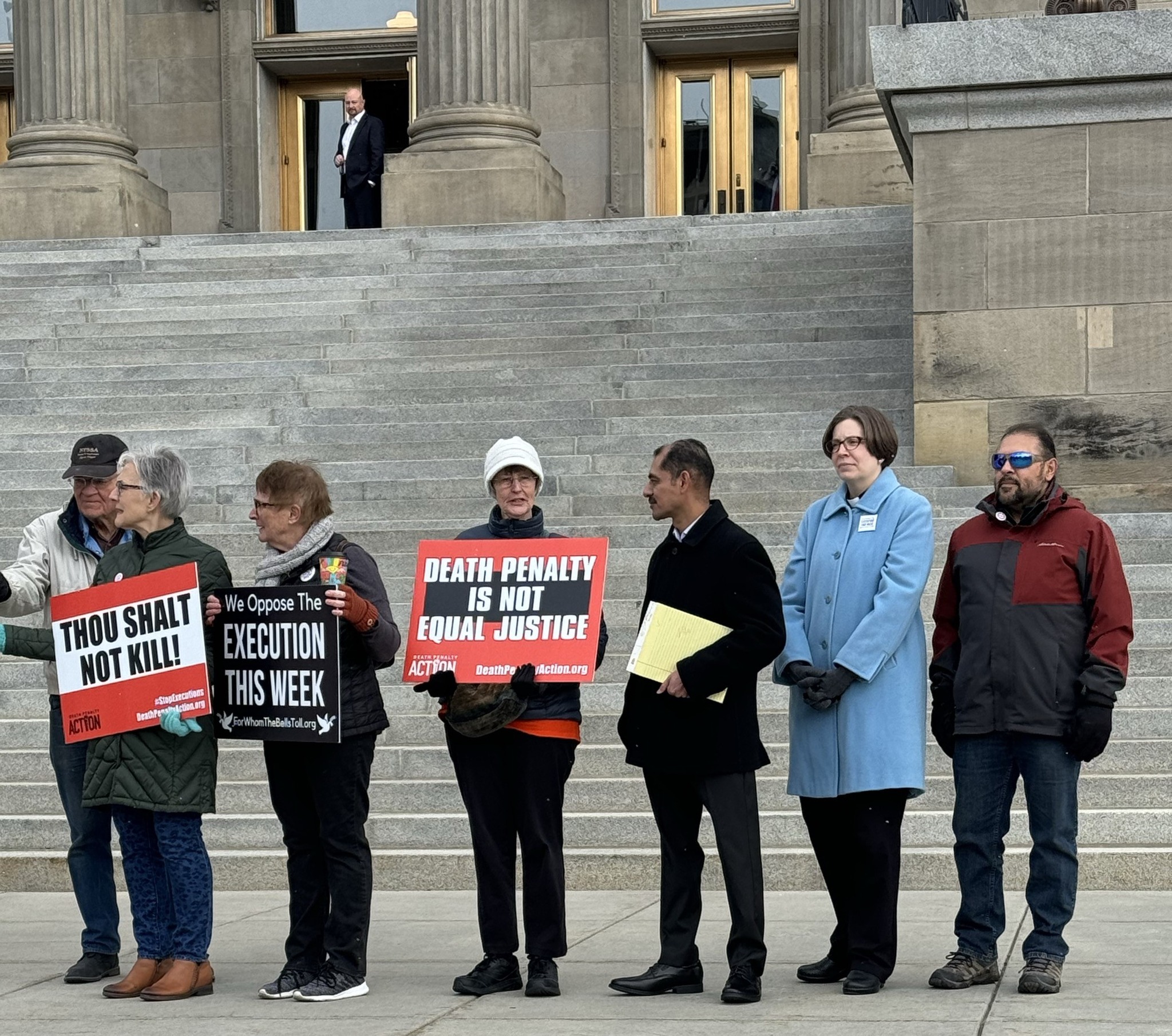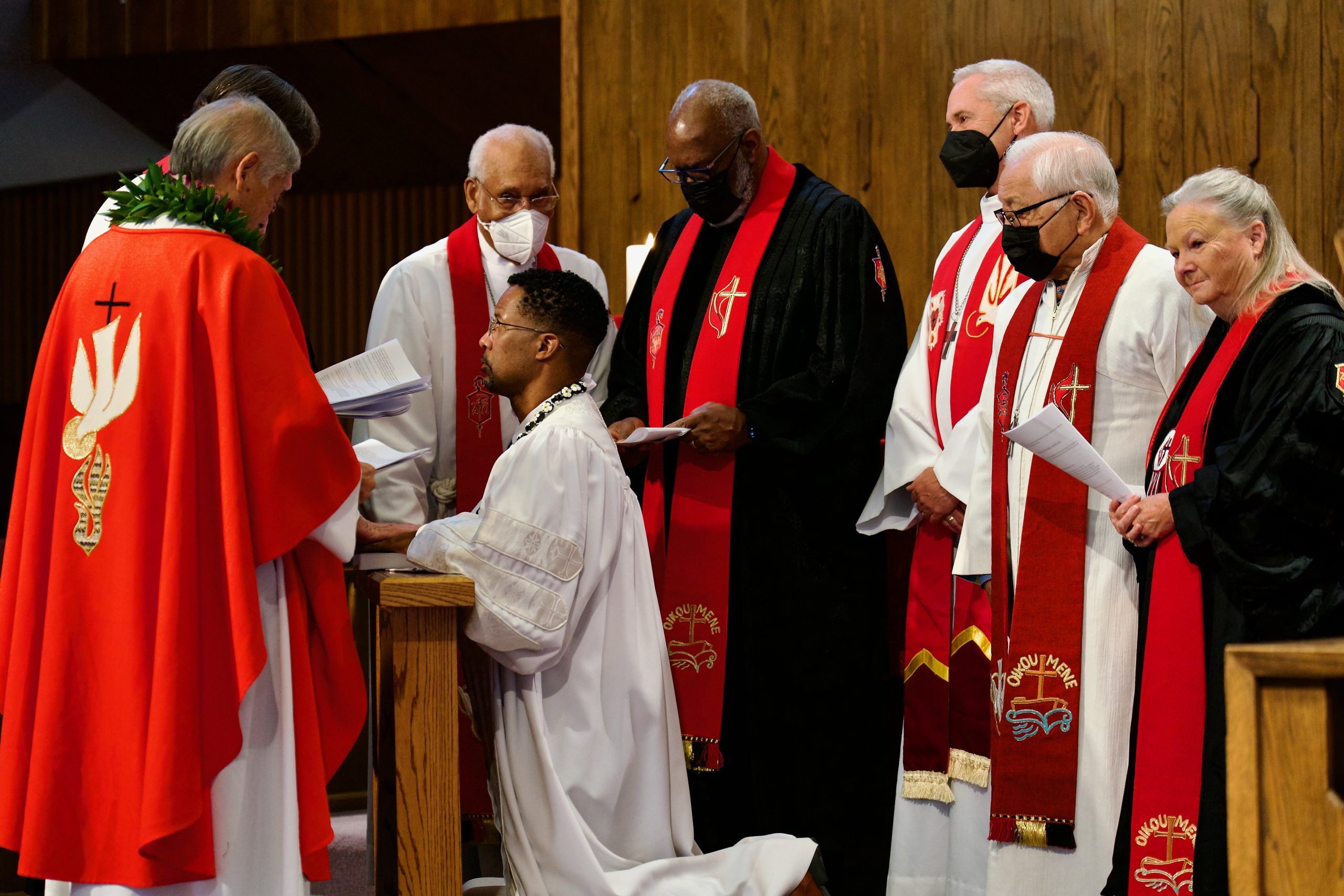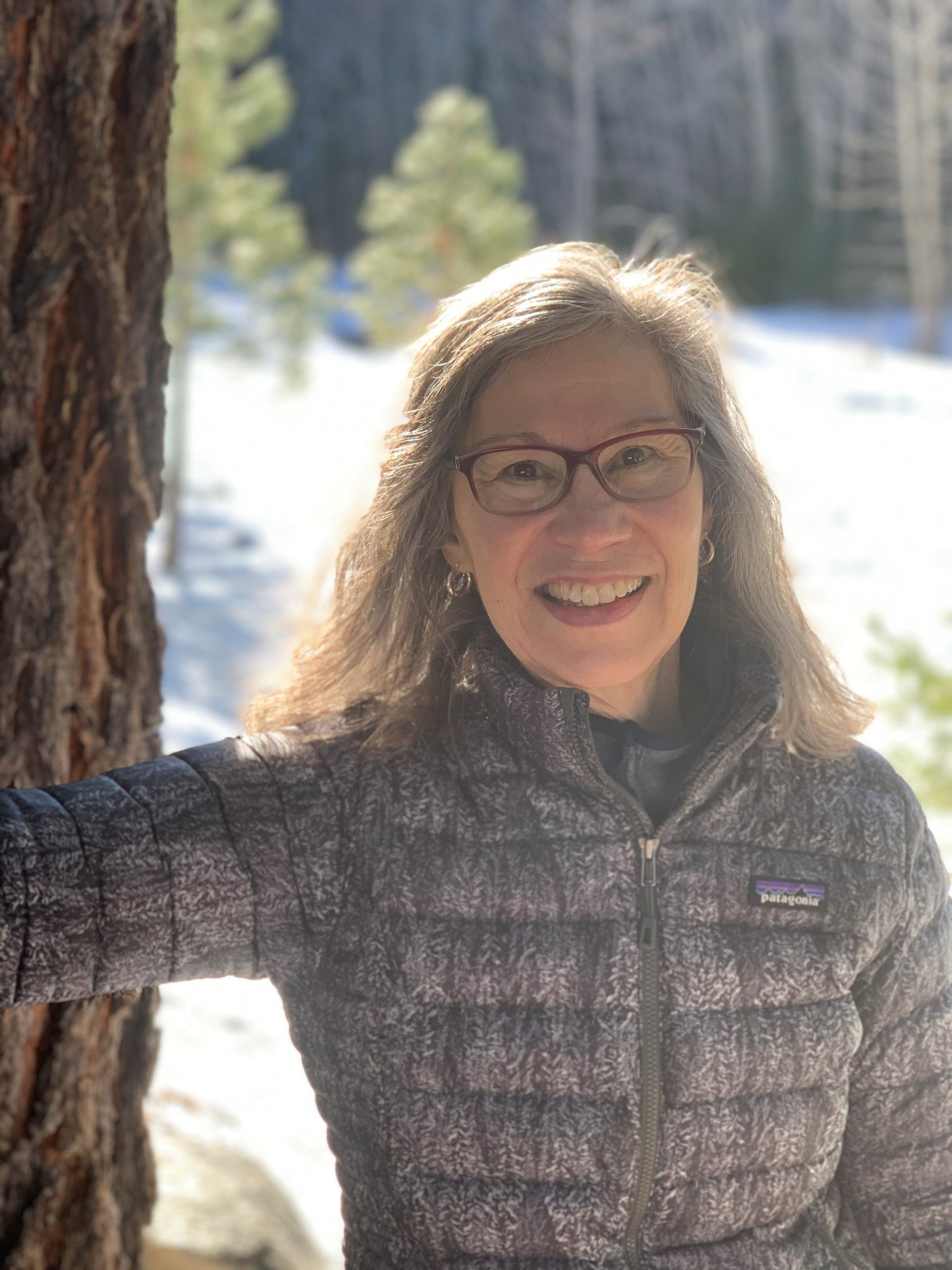Puget Sound District Superintendency Team
Crest to Coast Superintendency Team
SeaTac Superintendency Team
Conference treasurers discuss new Benefits/HR position and collaborative vision

Conference treasurers discuss new Benefits/HR position and collaborative vision
This week, the Greater Northwest Area announced a candidate search for a new Director of Benefits and Human Resources. The position is the first step toward a vision of shared administrative services across the area, following several years of intense planning and conversations. Once hired, the Director of Benefits and Human Resources will resource and support the Alaska (AK), Oregon-Idaho (OR-ID, and Pacific Northwest (PNW) Conferences of The United Methodist Church and its local churches and ministries.
I spoke with Sara Goetze, OR-ID Acting Treasurer and Controller, and Brant Henshaw, AK/PNW Treasurer and Director of Administrative Services, to better understand this position and how it fits their larger vision for the area. Our conversation has been edited for brevity and to provide clarity.
So, thank you, Brant and Sara, for taking the time to explore this new position and the idea of shared services with me. How did we get to this point?
Brant Henshaw (BH): In 2018, we began to discuss overlap and collaboration, particularly in finance and administration. Dan Wilson-Fey (OR-ID Treasurer and Benefits Officer who retired in 2022), Sandra Reinemer, and I compiled a spreadsheet of common tasks and differences across our three conferences. We also considered the distinct ways each conference handled benefits because of increased cross-conference appointments.
Examining the similarities in our administrative work helped us see the opportunity for more collaboration. The pandemic also forced us out of our silos as we pulled together to resource churches during a crisis moment. It also highlighted issues that can emerge when we aren’t aligned.
As conversations progressed, our focus has been on aligning our resourcing, not a merger. A merger may happen someday, but it is not part of our plans.
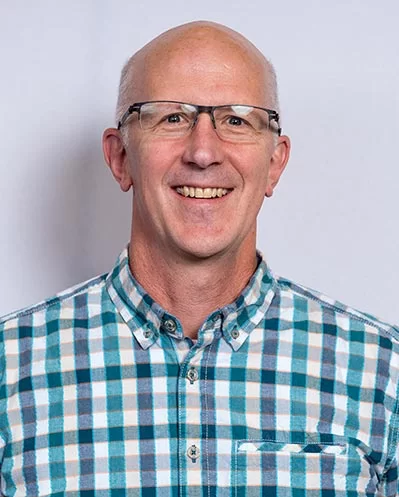

Sara Goetze (SG): And our bishop (Cedrick Bridgeforth) has been clear about that.
In our discussions, we have been working on talking the same language and trying to solve the same problems. This has also included shifts for each conference regarding platforms and procedures, with everyone contributing some discomfort to the cause. Other changes, like an adjustment to align the dates when local church statistics are due, were painless, with churches in OR-ID receiving a few additional weeks for reporting.
I imagine this continuity is helpful for staff and also less confusing for clergy serving in a cross-conference appointment.
SG: Correct.
Our conversations have continued over the past two years, moving beyond staff to engage other key stakeholders. Currently, an implementation team with representatives from the OR-ID and PNW Conferences is meeting regularly to discuss each conference’s needs, review potential positions, and ensure that the staff of any shared administrative office works with and is accountable to existing conference boards. We expect the full fruit of their work to come before members of each conference sometime over the next 12 months.
BH: So, it’s kind of a stay-tuned moment. For now, let me say that more collaboration would allow us to offer more specialization and resiliency, meaning local churches would have access to more expertise and better service without an increase in apportionments.
Still, even if we move toward a shared office or team offering administrative services, we will continue to operate out of the existing conference offices with staff in both locations. For this new position, we are open to them working out of the office in Portland or Des Moines.
Brant, earlier, you mentioned Dan Wilson-Fey, who retired in 2022. I know there have been several other retirements and transitions since 2018. How have these impacted your strategizing for more collaboration and planning for this new position?
BH: Any change in staffing can be an opportunity to adjust and consider what is different and how an organizational shift might be practical to meet the moment better.
Director of Benefits and Human Resources
The Greater Northwest Area (GNW) of The United Methodist Church is actively seeking a Director of Benefits and Human Resources to oversee all aspects of the GNW’s Benefits and Human Resources Department. This role is responsible for benefit administration and programming for GNW active and retired clergy, Conference and Board of Camp and Retreat Ministries staff; budget coordination; cash, investment, and trust management. The ideal candidate will also be responsible for administering the GNW human resource policies in collaboration with the Area Human Resources Personnel Committee.
The deadline for receiving applications is October 1, 2024. If you know of someone who might be interested, please have them: Click Here to Apply.
GNW is an Equal Opportunity Employer and actively seeks and encourages applications from minorities, women, and individuals with disabilities. All offers of employment are subject to the applicant successfully completing background, reference, and other applicable checks.
Dan’s retirement and other experienced and foreseeable transitions have been part of our conversations. Over the past few years, both the OR-ID and PNW Conferences have had several impactful staff transitions. It isn’t coincidental that I submitted the first formal proposal for a shared office in 2022, the same year Dan and PNW Assistant Treasurer Rik Jamieson retired.
As we have been having earnest conversations about shared services in finance, administration, and benefits, we have been trying to make space, including leaving some positions empty, for the possibility of shared services to become a reality.
Another big retirement looming for the Alaska and PNW Conference was announced at our (PNW) Annual Conference, long-serving PNW Benefits Officer Bruce Galvin. How does this relate to that?
BH: Bruce’s plan to retire in 2026 goes a long way toward explaining why we are hiring for this position now rather than waiting for the completion of other ongoing conversations. Both conferences have some existing needs that are already unfilled that this position will cover, but right now, we also have an opportunity for overlap. We aim to provide continuity and avoid any disruption that might impact services.
SG: In the OR-ID office, our need for a benefits officer is more pressing as benefits have gotten more complicated with the adoption of the Compass Retirement Plan by General Conference. There is a need for more direct communication with clergy about that plan and for managing the three legacy plans. Some of the human resourcing elements of the position are more pressing for the Alaska and PNW Conferences. Moving forward now is a win-win for the area.
How are you going about this hiring process, and when do you expect whoever is hired to come online?
SG: We are working with GCFA (the denomination’s General Council on Finance and Administration) for the hiring process. Our goal is to have someone in place by the end of October or early November. GCFA will help advertise the position inside and outside the connection and support the interview process.
It is valuable to us to hire someone who can speak United Methodist if possible. Working with GCFA will help, as recruiting in this area with the Church is really hard.
How is this position going to be financed?
BH: The Director of Benefits and Human Resources will be funded by existing resources under the care of conference pensions boards, with no new apportioned dollars required. This is a blessing from the excellent stewarding work of our shared resources in the past.
How do this hiring and the efforts toward shared services relate to Bishop Cedrick Bridgeforth’s conversations with each conference around setting ministry priorities?
BH: As we mentioned, these conversations around shared services have been ongoing for a long time. Of course, we will be respectful and responsive to what emerges from those conversations and are eager to see the results of those efforts.
That said, this new benefits/HR position will meet needs that exist today and will exist tomorrow, regardless of the ministry priorities each conference identifies.
Any last thoughts or hopes to share?
BH: We have learned that collaboration isn’t easy. Getting to this point has taken a lot of work, but we are starting to see the other side. While this work has asked a lot from us and a lot from those who have been having honest and direct conversations about our commonalities and differences, we know it will be a real benefit for those we are called to serve.
SG: Collaboration is the best path to sustainably resourcing our local churches and ministries and honoring our obligations. We see this position and the shared services office as an opportunity to provide more value while keeping costs neutral and saving money down the road.
In the short run, it would be easier to work in our silos. However, one of the strengths of United Methodism is our connectionalism. Why would we turn away from that?
Patrick Scriven serves as director of communications for the Pacific Northwest Conference of The United Methodist Church.
A pastoral letter from Bishop Cedrick on the eve of the scheduled execution in Idaho of Thomas E. Creech
Bridgeforth brings experience, collaborative mindset into new role as bishop of the Greater NW Area
Growing up in rural Alabama, it was Bishop Cedrick Bridgeforth’s grandparents who made sure he got to church – even on the days he didn’t want to be there.
But it was in the church, Lakeview United Methodist and Oakville Baptist churches that he found purpose – even on the hard days. After serving in the U.S. Air Force and earning a bachelor’s degree in religion from Samford University and a master of divinity degree from Claremont School of Theology, he has found the joy, purpose and calling that led him to become a newly-elected bishop in The United Methodist Church.
“Hopefully, people can see that the degrees, the titles, and the experiences are not where I began. That’s just where I’m on the journey right now,” Bridgeforth said. “I do that in a way to connect with people. My leadership style is about connecting with people.”
On Jan. 1, 2023, Bridgeforth will begin serving as bishop of the Greater Northwest Episcopal Area of The UMC. The GNW Area comprises the Alaska Conference, Oregon-Idaho Conference and Pacific Northwest Conference. He currently serves as the director of communication and innovation for the California-Pacific Conference.
When he was elected on the 18th ballot at the Western Jurisdictional Conference in Salt Lake City, Utah, on Nov. 4, he became the first openly gay African American male to hold the title of bishop within The UMC. His husband, Christopher Hucks-Ortiz, stood by his side as he was welcomed. It’s history he’s proud to make, but it is only part of his story and ministry.
Raised on a farm in rural Alabama, Bridgeforth has served churches in the California-Pacific Conference since 1999. He became an ordained elder in full connection with the church in 2006. He has served at Bowen Memorial United Methodist Church and Crenshaw United Methodist Church, before supervising many churches as a district superintendent in Cal-Pac Conference. He also has been a clergy coach and nonprofit consultant, has served on the board of the Black Methodists for Church Renewal, worked as the director of academic programs and outreach at the University of LaVerne and is a published author, to name a few things.

“I want my story to be open and available to people. There are parts of it people will connect with immediately. There are parts that people will hear and say, ‘I don’t get it.’ And that’s fine. All of us have that in our lives,” he said. “My leadership style is very personal. I try to be accessible to people. I like to hear people’s story because it helps me connect with them.”
On Sept. 11, 2001, he met his good friend – who later became his colleague – Dr. Larry Hygh, Jr., when Hygh and others attending the Strengthening the Black Church conference were stranded in Los Angeles due to the terrorist attacks on this country. Hygh said then-District Superintendent (now Bishop) Grant Hagiya sent church leaders out to check on those who were grounded in Los Angeles. Bridgeforth was one of those pastors.
Hygh recalls a caring presence in that moment. The two became better acquainted when, less than a year later, Hygh became the communications director for the Cal-Pac Conference and got to see what Bridgeforth’s ministry was like up close.
“I think he brings a gift of strategic leadership. I also believe he’s a person who can work with folks from various theological perspectives,” Hygh said. “Even when he might not agree, he can find commonality for the sake of the gospel. Folks like him are what we need.”
Hygh said he’s always appreciated his friend’s ability to meet people – all people – wherever they’re at in life. Hygh watched Bridgeforth work, as a district superintendent in the Los Angeles area, with some of the most diverse churches, communities and neighborhoods in the country.
“He makes connections that sometimes other folks do not see,” Hygh said.
This past summer, Bridgeforth, an avid cyclist and supporter of HIV/AIDS research, encouraged Hygh to train for and participate in a 545-mile AIDS/LifeCycle bike ride from San Francisco to Los Angeles to raise money for the San Francisco Aids Foundation and the Los Angeles LGBT Center.
“He is a much faster cyclist than I am,” Hygh said. “I’m the caboose in the back.”
Nevertheless, Hygh said his friend rode with him in the back one day on the seven-day course and saw a different perspective.
“He’s a servant leader who walks the talk,” Hygh said.
Bridgeforth calls himself collaborative by nature and hopes to bring that work to his role as bishop. He describes it as “a necessity” at this time in the church’s life.
“For us to innovate at the rate we need to, we have to collaborate,” Bridgeforth said.
As he steps into the episcopal role in the Greater Northwest Area, he knows the church is at a critical point. Membership is in decline, and the church may be splintering as some churches seek to disaffiliate before the 2024 General Conference. He knows it’s something that the church will grapple with, and to do that, people must first maintain their hope in Jesus Christ.
“I’m not a person who believes divorce is a bad thing,” Bridgeforth said. “Sometimes divorce is necessary, and it is the only thing that will bring about healing.”
He said it’s a good thing for people to be clear about their values and to bless each other as they depart. But the faithful disciples who remain within the denomination need to be clear about why they have decided to stay – not just because some people they disagree with left.
“Did we remain United Methodists because we believe in the strength of Wesleyan grace? Do we believe in the strength of being connected? Do we believe that serving together is better than just serving on our own? Do we believe that there is truly hope in Jesus Christ? Do we believe we have a message of salvation and resurrection that can resonate in this season and in coming seasons? I’ll preach that; I’ll teach that,” Bridgeforth said. “I want to organize us so that we are delivering that message in every way possible. So that we examine our structures, we examine our policies, and our behaviors so that they align with this understanding of resurrection – of hope on the other side of division.”
- RELATED stories from UM News: Western elects Cedrick Bridgeforth as bishop
- RELATED: First-elected delegates excited for the gifts, graces Bishop Bridgeforth will bring to the GNW Area
Kristina Gonzalez to serve as GNW Executive Director for Innovation and Vitality
Kristina Gonzalez to serve as GNW Executive Director for Innovation and Vitality
 Bishop Elaine JW Stanovsky has named Kristina Gonzalez Executive Director for Innovation and Vitality for the Greater Northwest Area. Gonzalez will continue to work with Rev. Dr. Leroy Barber, Director of Innovation for an engaged church. The Innovation Vitality (IV) Team supports local churches, innovation projects and boards and agencies to continue to embrace inclusion, innovation and multiplication as practices of Christian discipleship that are core to vital ministry in the region.
Bishop Elaine JW Stanovsky has named Kristina Gonzalez Executive Director for Innovation and Vitality for the Greater Northwest Area. Gonzalez will continue to work with Rev. Dr. Leroy Barber, Director of Innovation for an engaged church. The Innovation Vitality (IV) Team supports local churches, innovation projects and boards and agencies to continue to embrace inclusion, innovation and multiplication as practices of Christian discipleship that are core to vital ministry in the region.
Gonzalez will step into this leadership role following Dr. William Gibson’s resignation as the IV Team Lead, effective March 31.
In making the announcement of Gonzalez’s new role, Bishop Elaine JW Stanovsky affirmed that “Greater Northwest Area leadership remains committed to supporting new ways of being church, especially as IV projects help us learn where God is calling us today.”
“The United Methodist Church is struggling. We are declining, divided and constrained by white cultural norms,” Stanovsky acknowledged. “But Jesus continues to deliver good news and invites us into abundant life every day. Many of us struggle to keep pace with what God is up to. Kristina develops systems that foster disciples who look beyond decline to lead a new and bright future. We are blessed that she is willing to step into this role at this time.”
Gonzalez will be responsible for hiring and supervising the IV team staff and consultants, in collaboration with conference directors of connectional ministries, and providing strong support systems for innovation vitality projects and their leaders. She will also continue to ensure that intercultural competency leadership is at the heart of our efforts for this transformative work.
“The Innovation Vitality Team helped to position intercultural competency as central to vitality in our new and existing ministries. Our abilities to interact across cultural differences – race, ethnicity, age, sexual orientation, gender identities, physical and mental abilities and more – will define us into the future. As Rev. Dr. Barber says, ‘innovation happens at the intersection of difference,’” Gonzalez said.
In her role serving three conferences, Gonzalez will report to the bishop of the Greater Northwest Area. As executive director, Gonzalez will lead during a transition period. The Vitality Commission formed by the 2021 Annual Conferences is reviewing the structure and operations of the IV Team to recommend changes to strengthen this work. The Commission will make a progress report to this year’s annual conference sessions in June and will bring recommendations to improve and streamline vitality work in 2023.
Gonzalez is a trusted leader and expert in intercultural competency with deep connections to United Methodism in the northwest and beyond. First hired as a Pacific Northwest Conference staff member by Bishop Elias Galvan in 1998, she joined the IV Team in 2018, bringing her gifts to the Greater Northwest Area.
“I’ve had the privilege of serving the Pacific Northwest Conference and the GNW Area of our United Methodist Church for more than 20 years. Despite title changes, restructuring and varied visions, my work has been about embedding intercultural competency at all levels of our complex church structure, from local church to the denominational Connectional Table,” Gonzalez said.
Gonzalez is a qualified administrator for the Intercultural Development Inventory (IDI) and an associate with the Kaleidoscope Institute for diverse sustainable communities. She has served as faculty of the annual school for United Methodist supervising clergy for 19 years and consults and trains ecumenically in intercultural competency.
Gonzalez has professional experience in the public and non-profit sectors working in the arts and human services. Her community service work includes eight years on the curriculum committee of Leadership Tomorrow, a community leadership program serving the greater Seattle area, and a term on the board of trustees.
She served on The United Methodist Church’s Connectional Table, from 2004-to 2008 and chaired the Washington Association of Churches (now Faith Action Network) for two terms. She served on the board of directors for Bayview Retirement Center in Seattle for two terms.
“My new position title, Executive Director for Innovation and Vitality is simply an extension of my hopes and dreams over time,” Gonzalez said. “Those hopes and dreams; that we in the GNW Area of The UMC embed in our culture the practices of inclusion, innovation and multiplication, as a means of refreshing and renewing our relationships with Jesus Christ through our Wesleyan heritage in ways that are relevant and resonant today.”
Three practices for vital ministry
1. Inclusion – if WE – our ministries, leaders and members become more interculturally competent then we will learn to welcome, include, and partner with our diverse neighbors.
2. Innovation – if “WE” expands to include the variety of people in our neighborhoods, then WE will reach out with openness to join what God is already doing in sparks of innovation that come at the intersection of difference.
3. Multiplication – if our ministries make a difference in the lives of people and their communities, then we will follow Jesus to engage with more new people, and their needs, multiplying the people we partner with and serve.
BSA Extension Letter | Oct. 6, 2021
Grace and Peace to you,
In late August, you received a letter from Bishop Elaine Stanovsky regarding the ongoing Boy Scouts of America bankruptcy, with some guidance originating in our denomination’s legal advisors. This group of chancellors, advised by bankruptcy experts and in consultation with church leaders, is engaged in this very complex matter to ensure that any of our churches who act as chartering organizations, are protected to the fullest extent possible as we wrestle with the shadow of abuse in our midst over many decades.
Previously, the guidance was to pause the chartering/re-chartering of scouting troops with a reset on December 31, 2021. We have now received updated guidance to extend this pause until March 31,2022. With this additional time, the BSA and legal representatives of the UMC will continue work on a new chartering arrangement that protects both organizations appropriately. This means that whatever status (charter or facility use agreement) that your church now has with your troop, old or newly negotiated, can remain in force until the end of March 2022.
There will be a joint statement released this week that will outline this extension for the bankruptcy case to run its course and to give time for development of a new agreed-upon form of agreement for United Methodist organizations wishing to charter a Scout unit in the future.
The two organizations agree that whatever agreements are currently in place can be extended until March 31, 2022, after which a new charter agreement should be available to take the relationship into the future.
Today we ask that you extend your current relationship with BSA troops, at whatever CURRENT status it is, until March 31, 2022, and pray for the survivors’ healing. God has gifted us with compassion and wisdom to reach just settlements and faithfully steward the resources of the UMC.
Please don’t hesitate to reach out to one of us if you have any questions.
In Christ,
Brant and Dan
 |  |
| Treasurer Alaska & PNW Conferences bhenshaw@pnwumc.org | Treasurer/Benefits Officer Oregon-Idaho Conference dan@umoi.org |

